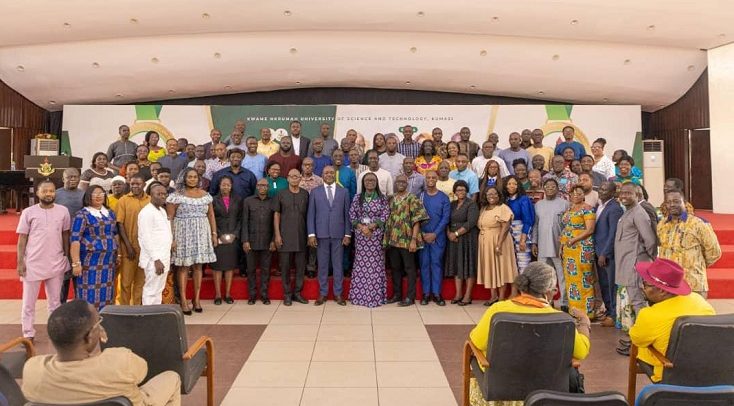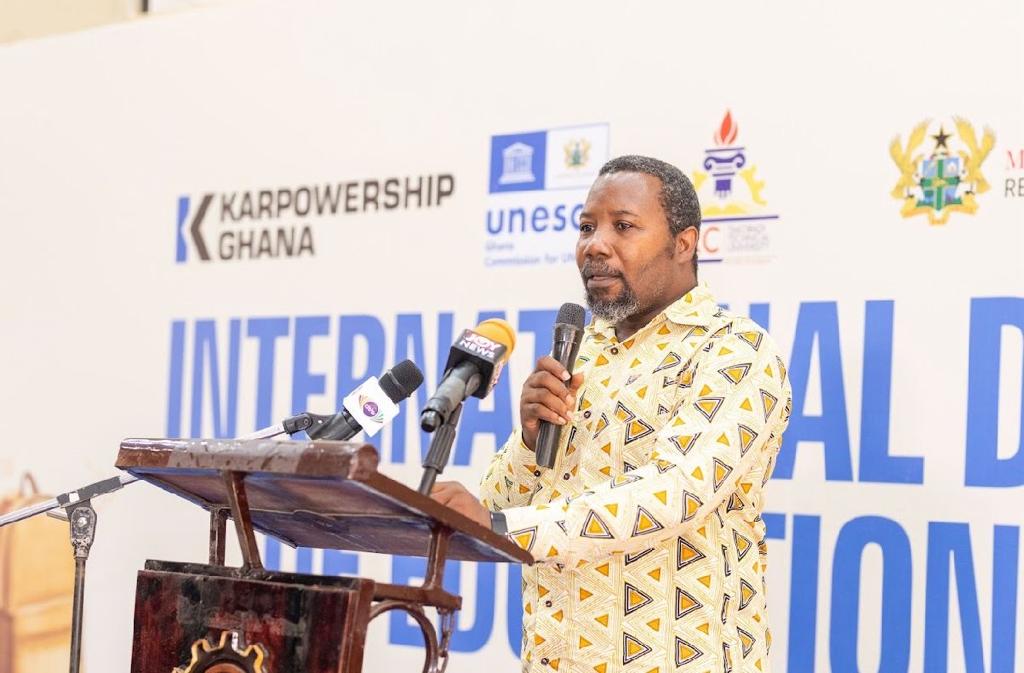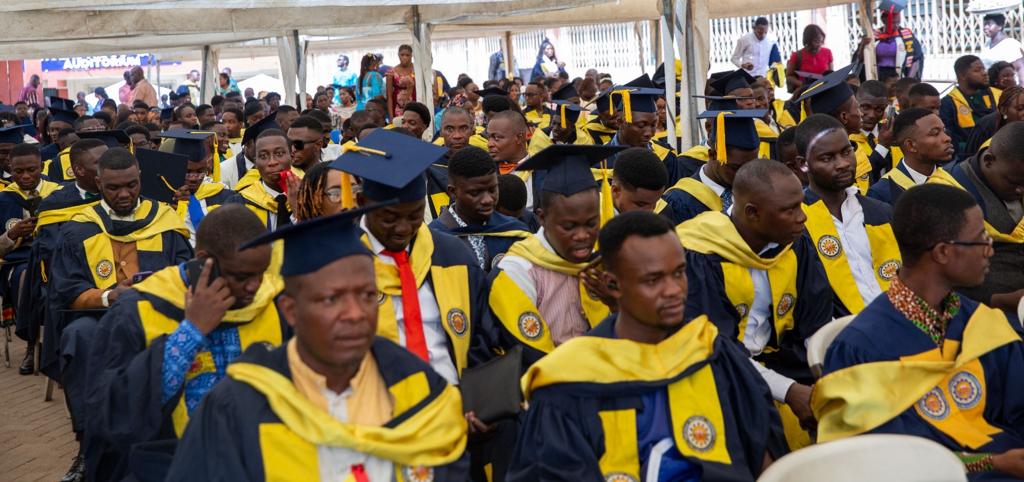
Dr Mathew Opoku Prempeh, Minister for Education, has given the assurance that government would encourage and promote the education and training of girls in technical and vocational skills.
In a key note address delivered on his behalf at the 2019 Technical and Vocational Training and Education (TVET) Dialogue in Accra on Wednesday, January 16, 2019, Dr Prempeh said vocational skills training and capacity-building for both genders was a key priority for sustainable development, adding that the low participation of girls in TVET would, therefore, be gradually reversed.
Furthermore, he said, the Council for Technical and Vocational Education and Training (COTVET) was embarking on an advocacy and campaign programme to reverse the negative attitude of society towards TVET and make it more attractive to the youth.
His Excellency, Ron Strikker, Dutch Ambassador to Ghana noted that TVET had a key driver of development worldwide and a prerequisite for Ghana's economic development as well.
H.E. Strikker, therefore, urged the Ministry of Education (MoE) and Plan International, Ghana to work with other partners and stakeholders for the implementation of key recommendations that would emerge from the Dialogue for the enhancement of the TVET agenda.
In an address, Mr Solomon Tesfa-Mariam, Country Director, Plan International, Ghana, a Non-Governmental Organization (NGO), stressed the need for a well?diversified education system in order to gain sustainable development through education.
Mr Tesfa-Mariam noted that education was a basic human right, linked to human resource development and, therefore, a key tool for national development which should not only include the acquisition of knowledge, but also skills aimed at achieving an all-round individual for the roles and challenges in the society.
He expressed regret that although Ghana had a fairly large educated population, significant progress had not been achieved in the acquisition of skills, a situation which, he said, stifled the creativity, dreams and gifts of learners who did not measure to the expected high grades in examinations, leading to an increase in the rate of school drop-outs and the importation of common skills such as construction of road networks.
He said the chances of girls who dropped out of school, especially due to child marriage, sexual violence, trafficking and commercial sexual exploitation, getting a decent job was minimal, adding that without income and financial independence, they became more vulnerable to violence.
Mr Tesfa-Mariam said TVET played a pivotal function in socio-economic development which justified the allocation of adequate resources for modernizing infrastructure in TVET institutions, as well as the training of TVET instructors.
He called for support for private sector participation in the revamping of TVET institutions to ensure that the preferred machinery and equipment at TVET centers for training the skilled workers to produce quality goods with higher efficiency, adding that curriculum should also be reviewed in the light of modern technological advancement.
He also expressed gratitude to the Girls Advocacy Alliance (GAA) for bringing all stakeholders in Ghana's education sector to dialogue on the role of TVET in empowering girls for a brighter future, which Plan International Ghana was pleased to be a part of.
Mr Tesfa-Mariam explained that GAA? an initiative of Plan Netherlands, Defence for Children, Netherlands (ECPAT) and Terre des Hommes, Netherlands, and funded by the Dutch Ministry of Foreign Affairs? was a five-year intervention (2016 to 2020) in 10 countries spread across Africa and Asia.
During a panel discussion, Dr Fred Kyei Asamoah, Executive Director, COTVET, disclosed that TVET was fee-free at the second cycle level of education as a means of making TVET important and attractive.
Furthermore, Dr Asamoah said, government had embarked on a programme of building more TVET institutions, upgrading existing institutions and expanding structures.
He noted that when girls acquired skills, unemployment would be considerably reduced, hence the need to review the TVET 5-Year Strategic Plan to facilitate proper TVET governance, quality of education and training, and to improve access.
For her part, Mrs Grace Amey-Obeng, Chief Executive Officer, FC Beauty Group and a member of the Association of Ghana Industries, underscored the importance of internships and attachments as integral components of TVET.
Mrs Amey-Obeng applauded COTVET for the important role it was playing in skills development and urged government to work with and support COTVET in the development of skills and to engage the private sector on TVET.
In his remarks, Mr Asum-Kwarteng, PSM, Plan International, Ghana, called for a radical shift in mindset towards TVET while urging Ghanaians to patronize locally-manufactured products.
Mr Asum-Kwarteng noted that lack of attention to TVET would impact negatively on the girl-child and sounded a note of caution that TVET would be ignored at the risk of Ghana not attaining its Ghana Beyond Aid agenda.
This year's TVET Dialogue was organized by the Ministry of Education in collaboration with Plan International Ghana on the theme: Empowering the girl-child?The role of TVET.
Read Full Story


























Facebook
Twitter
Pinterest
Instagram
Google+
YouTube
LinkedIn
RSS